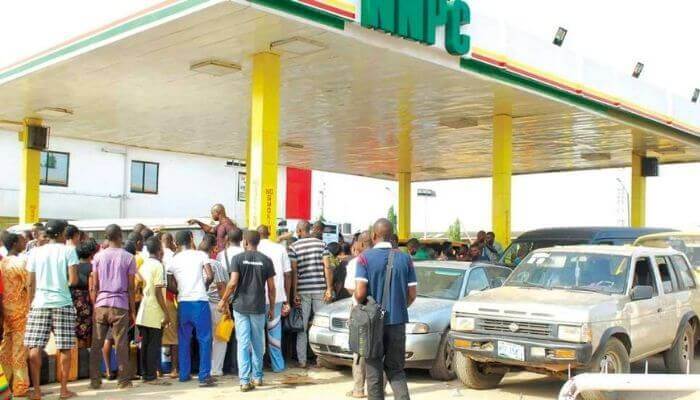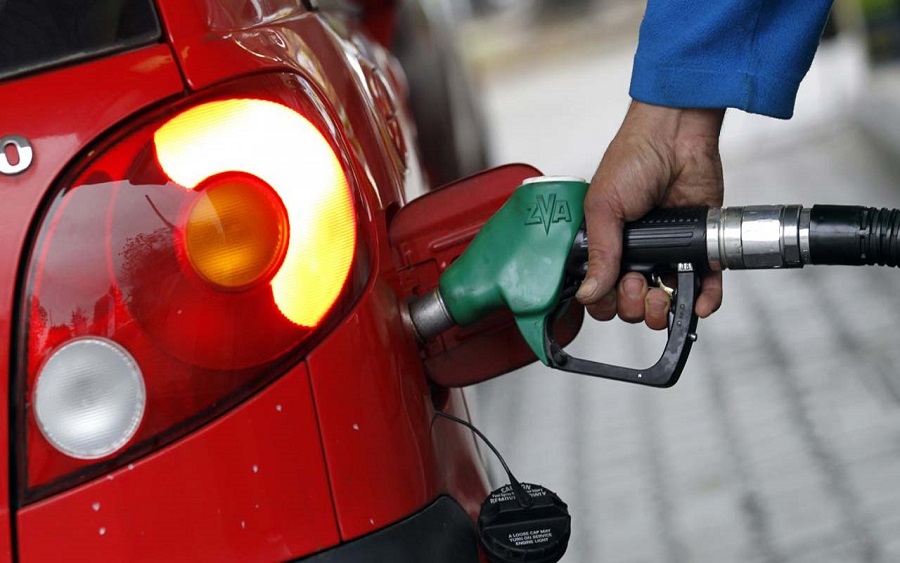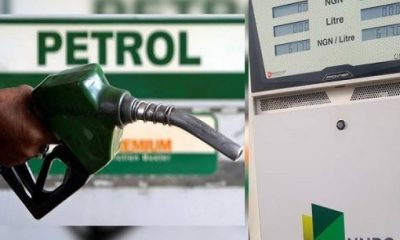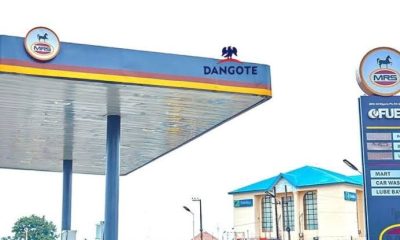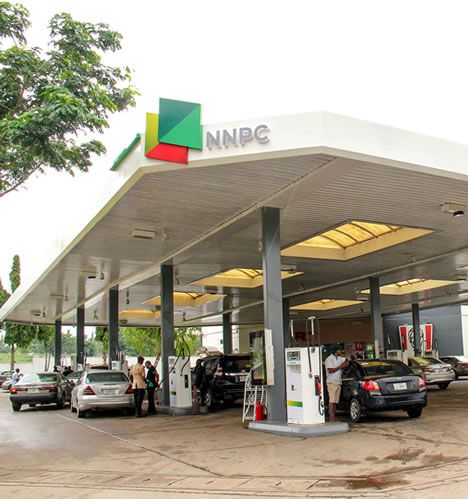Headlines
Fuel Price Crisis Deepens as New Pump Price Sparks Outrage, Questions on Dangote Refinery

The Nigerian National Petroleum Corporation (NNPC) recently announced an increase in the pump price of petrol from ₦617 per litre to ₦897 per litre.
This outrageous hike has triggered a widespread discontent across Nigeria, especially as many had pinned hopes on the Dangote Refinery to alleviate the country’s lingering fuel crisis, EKO HOT BLOG observed.
NNPC had through a statement made available through Chief Corporate Communications Officer, Garba Deen Muhammad, announced the change in pump prices across the country.
The company stated, “NNPC Limited wishes to inform our esteemed customers that we have adjusted our pump prices of PMS across our retail outlets, in line with current market realities.
“As we strive to provide you with the quality service for which we are known, it is pertinent to note that prices will continue to fluctuate to reflect market dynamics.
Fuel Price Crisis Deepens as New Pump Price Sparks Outrage, Questions on Dangote Refinery
EDITOR’S PICKS
- Japan’s Next PM Vows to Respect BOJ’s Autonomy
- Insecurity: Stop Hiding Behind Opposition—APC Urges Zamfara Govt
- Delta Child Rights Amendment Bill Passes Second Reading
“We assure you that NNPC Limited is committed to ensuring a ceaseless supply of products. The company sincerely regrets any inconvenience this development may have caused.”
The New Price Hike: What Happened?
Although NNPC has remained mum as to why there was a sudden increase in the pump prices, however, it is believed that the NNPC’s decision to raise the price comes amid a combination of rising global oil prices and currency devaluation.
The Nigerian naira has seen a significant drop in value against the US dollar, which has made the cost of importing refined petroleum products substantially higher.
With Nigeria still dependent on imports for most of its fuel consumption, the higher cost of securing petrol from international markets might have directly impacted the pump price.
Dangote Refinery: A Missed Opportunity for Relief? 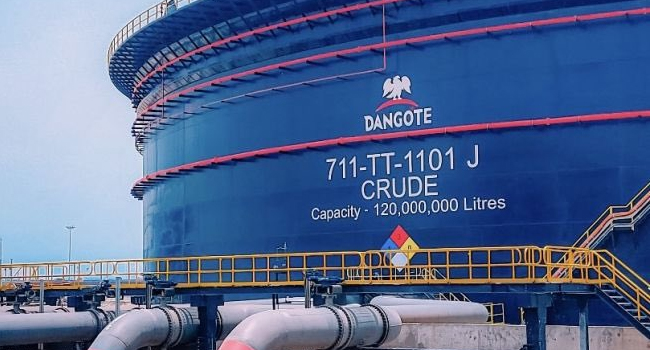
The Dangote Refinery, touted as the largest single-train refinery in the world with a capacity to process 650,000 barrels of crude oil per day, was expected to alleviate Nigeria’s dependence on fuel imports.
Many Nigerians had hoped that its inauguration would provide much-needed relief by stabilizing fuel supplies and reducing prices. However, the refinery has not yet reached full operational capacity.
Delays at the Dangote Refinery
Uncompleted Fuel Contracts: Even if the refinery were fully operational, it would take time for its products to enter the market at competitive rates. NNPC had pre-existing fuel import contracts, and the local production would not immediately replace imports.
Also, the NNPC is yet to reach an agreement with the Dangote refinery, as there are still some conditions unmet.
FURTHER READING
- Bello Turji: More Soldiers Deployed To Zamfara As Deadline For Bandit Leader’s Levy Expires
- Pastor Allegedly Stabs Wife To Death In Anambra
- Insecurity: Stop Hiding Behind Opposition—APC Urges Zamfara Govt
Naira Devaluation Impact: The refinery’s products would still be sold at international market rates, and with the current devaluation of the naira, the cost savings that Nigerians anticipated may not materialize immediately.
Recall that the NNPC had once said that the foreign exchange rate (FOREX), will still be a determinant factor as to the amount which will control the fuel prices.
Impact on the Nigerian Economy
The increase from ₦617 to ₦897 per litre will undoubtedly have widespread consequences for Nigeria’s economy:
Transportation Costs: Public transportation and logistics sectors will experience a sharp rise in costs, which could lead to increased prices for goods and services.
Inflation: With higher transportation costs, inflation could further worsen, leading to higher food prices and basic commodities.
Public Outcry: There has already been significant backlash from citizens and civil society groups who argue that the new price is unsustainable for the average Nigerian household.
Reactions from the Masses
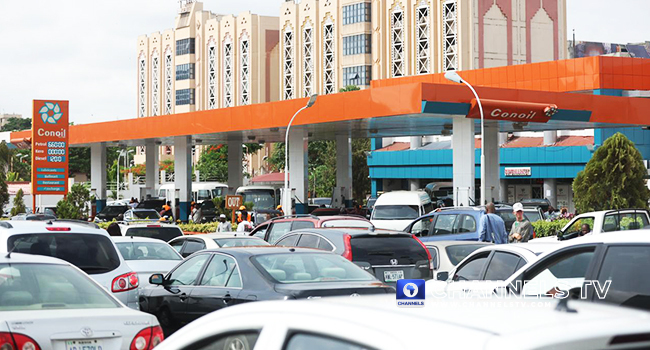
The hike in fuel prices has sparked outrage and frustration among Nigerians who already face tough economic challenges. Many are struggling to cope with the increase in the cost of living, and the latest pump price hike is seen as a tipping point for some.
“We can barely afford to feed our families, and now they want us to pay almost ₦900 for fuel? This is too much,” said Bola Akintola, a taxi driver in Lagos.
“How are we supposed to survive? Everything will be more expensive now – food, transportation, even electricity. It’s like they don’t care about the common man,” he added.
Aisha Umar, a mother of four trading in Lagos also expressed her concern over how the increase would impact her household.
“Before this hike, I could barely manage with the cost of food and school fees. Now, I don’t even know how we will survive. The government promised that the Dangote Refinery would help, but we are yet to see anything change,” she said.
Emeka Okafor, a small business owner in Ibadan, voiced his frustration as well. “My business is heavily reliant on fuel for generators since we don’t have stable electricity. With this increase, I might be forced to close shop”
The recent hike in petrol prices from ₦617 to ₦897 by NNPC underscores the complexity of Nigeria’s fuel crisis.
While the Dangote Refinery was seen as a beacon of hope, inexplicable reasons have continuously caused delays in its full operation.
Coupled with global oil market fluctuations and currency challenges, Nigerians are facing a difficult reality. Without structural reforms in the energy sector and a stable currency, the road to affordable fuel prices may be long and uncertain.
Click here to watch our video of the week
Advertise or Publish a Story on EkoHot Blog:
Kindly contact us at [email protected]. Breaking stories should be sent to the above email and substantiated with pictorial evidence.
Citizen journalists will receive a token as data incentive.
Call or Whatsapp: 0803 561 7233, 0703 414 5611


